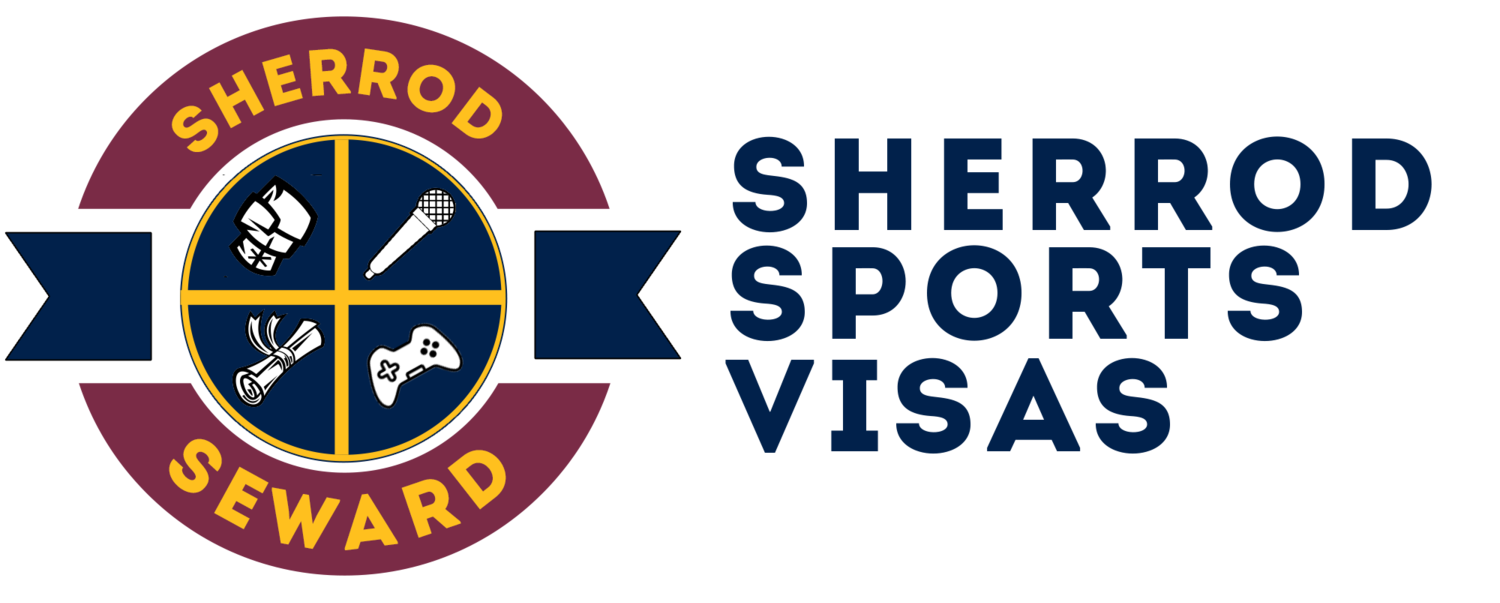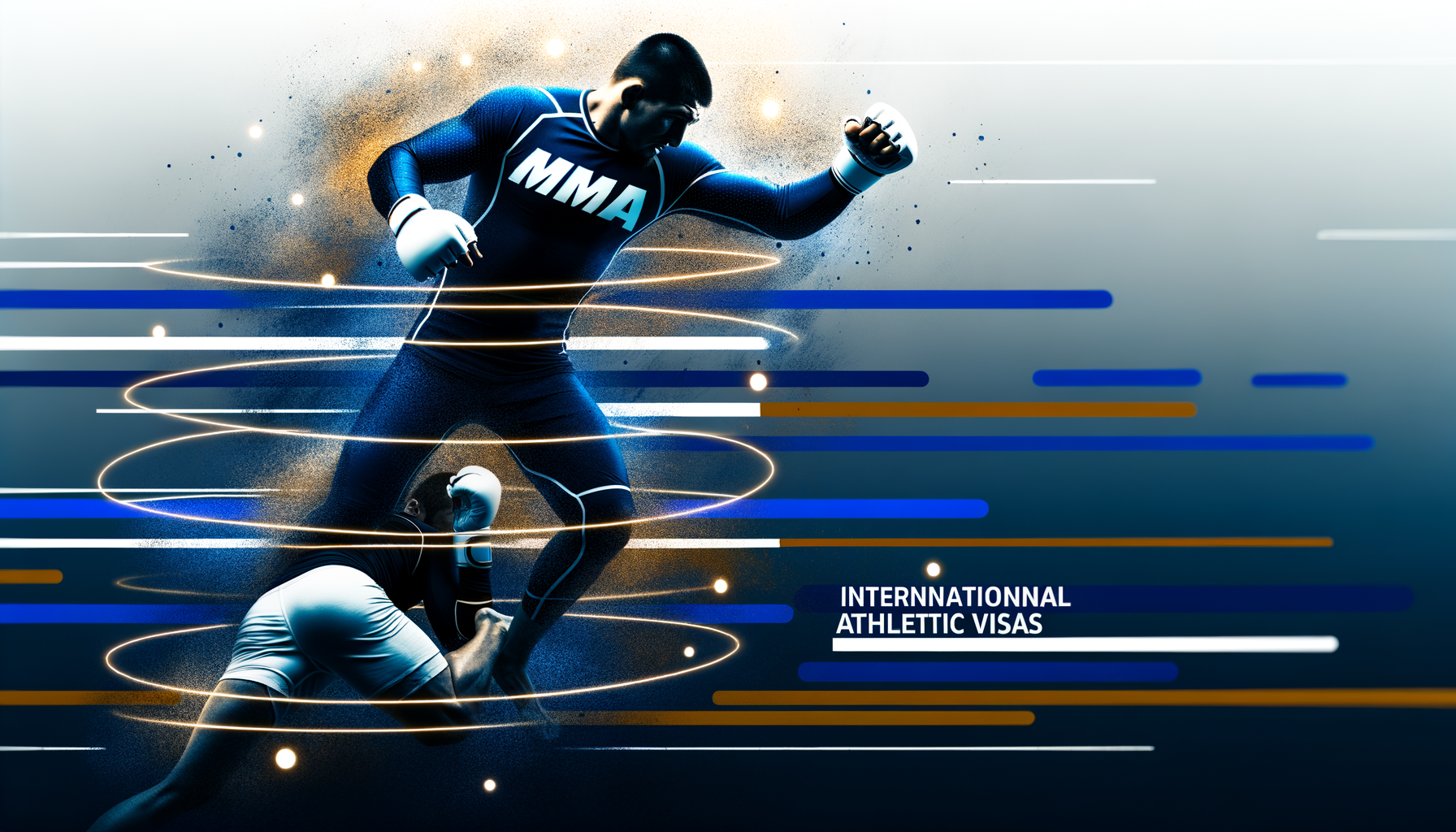The Complete Guide to MMA P-1 Visas: Lessons from Arjan Bhullar's Championship Journey
In the world of mixed martial arts, crossing borders often means more than just competing in different countries—it means navigating complex immigration requirements that can make or break an athlete's career. For fighters like Arjan Bhullar, the P-1 visa represents the gateway to competing at the highest levels of American MMA.
The P-1 visa category serves internationally recognized athletes competing individually or as part of a team. For MMA fighters, this visa type offers specific advantages that align with the sport's unique competition structure and career demands.
Understanding P-1 Visas for MMA Athletes
The P-1 visa differs significantly from other athletic visa categories. Unlike the O-1A visa, which requires extraordinary ability evidence, the P-1 focuses on international recognition and the specific competition or event bringing the athlete to the United States.
For MMA fighters, this distinction proves crucial. The sport's relatively recent mainstream emergence means that traditional "extraordinary ability" metrics may not capture a fighter's significance within the MMA community. The P-1's focus on international recognition and specific competition provides a more suitable framework.
Key P-1 Requirements for MMA Fighters
The USCIS requires P-1 applicants to demonstrate:
International recognition in their sport
Competition at a significant level
A specific event or competition in the United States
Appropriate petitioning organization
For fighters like Arjan Bhullar, meeting these requirements involves strategic documentation that captures MMA's unique characteristics.
Arjan Bhullar: A Case Study in P-1 Success
Arjan Bhullar's journey to MMA prominence illustrates the P-1 visa's suitability for international fighters. As a Canadian-Indian heavyweight with wrestling credentials and professional MMA success, Bhullar's case demonstrates how diverse backgrounds can satisfy P-1 requirements.
Wrestling Foundation and MMA Transition
Bhullar's amateur wrestling background provided crucial foundation for his P-1 petition. Wrestling achievements at the international level established early recognition that translated effectively to MMA competition documentation.
The transition from wrestling to MMA required careful legal presentation. Attorney Sherrod Seward understood that both sports needed integration into a coherent narrative showing continuous high-level athletic achievement.
Professional MMA Career Documentation
Bhullar's professional MMA record required comprehensive analysis beyond simple win-loss statistics. The legal team examined:
Competition Quality
Each opponent's ranking, reputation, and significance within MMA received detailed analysis. This approach demonstrated consistent competition against internationally recognized fighters.
Venue and Promotion Analysis
Fights in major promotions like ONE Championship provided evidence of significant competition levels. The legal team documented these promotions' international reach and significance within professional MMA.
Media Coverage and Recognition
Extensive media coverage of Bhullar's fights, interviews, and career progression supported arguments for international recognition. This documentation spanned multiple countries and languages, reflecting MMA's global nature.
Strategic Advantages of P-1 for MMA Fighters
The P-1 visa offers several advantages specifically relevant to MMA athletes:
Event-Specific Nature
MMA competition often involves specific events or fight cards. The P-1's event-specific structure aligns naturally with how MMA promotions organize competitions.
Team and Individual Recognition
While MMA involves individual competition, fighters often represent teams, camps, or promotional organizations. The P-1 accommodates both individual achievement and team affiliation.
Shorter Documentation Requirements
Compared to O-1A petitions, P-1 applications may require less extensive documentation, making them accessible for fighters earlier in their professional careers.
Multiple Entry Flexibility
P-1 status allows multiple entries during the validity period, accommodating MMA's international competition schedule.
Common P-1 Challenges for MMA Athletes
Despite its advantages, the P-1 process presents specific challenges for MMA fighters:
Sport Recognition Issues
MMA's relative newness compared to traditional sports sometimes creates USCIS adjudication challenges. Legal counsel must educate adjudicators about MMA's legitimacy and international structure.
Petitioning Organization Requirements
The P-1 requires an appropriate petitioning organization. For MMA fighters, this might be a promotion, management company, or sanctioning body. Establishing the petitioner's qualifications requires careful documentation.
International Recognition Documentation
Proving international recognition in MMA requires understanding the sport's global landscape. Rankings, media coverage, and expert opinions must be presented strategically.
Documentation Strategy for MMA P-1 Petitions
Successful P-1 petitions for MMA fighters require comprehensive documentation strategies:
Fight Record Analysis
Detailed analysis of each professional fight, including opponent quality, venue significance, and competition context. This goes beyond simple statistics to examine the broader significance of each bout.
Ranking Documentation
MMA rankings from recognized organizations provide crucial evidence. However, the fragmented nature of MMA rankings requires strategic selection and presentation.
Media and Publicity Evidence
Fight previews, post-fight coverage, interviews, and feature articles demonstrate public recognition and media interest in the fighter's career.
Expert Testimonials
Letters from MMA professionals, including coaches, promoters, and fellow fighters, provide context for the athlete's achievements and standing within the sport.
Training and Preparation Documentation
Evidence of high-level training facilities, coaching, and preparation demonstrates the professional nature of the fighter's career.
The Role of Specialized Legal Counsel
MMA's unique characteristics require specialized immigration counsel familiar with the sport's structure and culture. Generic immigration approaches often fail to capture what makes MMA fighters internationally recognized.
"MMA presents unique documentation challenges," explains immigration attorney Sherrod Seward. "The sport's global nature, diverse fighting styles, and promotional landscape require deep understanding to present compelling P-1 petitions."
Understanding MMA Culture
Effective legal representation requires familiarity with MMA terminology, ranking systems, and cultural significance. This knowledge enables attorneys to present cases in terms USCIS adjudicators can understand and evaluate.
Strategic Petition Preparation
Specialized counsel can identify the strongest evidence categories for each fighter, avoiding common pitfalls that lead to request for evidence (RFE) or denial.
Current Trends in MMA Immigration
The growing recognition of MMA as a legitimate professional sport has improved P-1 petition success rates. USCIS adjudicators have developed greater familiarity with MMA's structure and achievement measures.
Increased Acceptance
Recent years have seen increased acceptance of MMA-related visa petitions as the sport has gained mainstream recognition and regulatory oversight.
Precedent Cases
Successful cases like Bhullar's establish precedents that benefit future MMA fighters seeking U.S. competition opportunities.
Regulatory Evolution
As MMA regulation continues developing, documentation standards become more standardized, potentially simplifying future petition processes.
Planning for MMA Immigration Success
For international MMA fighters considering U.S. competition, early planning proves crucial:
Career Documentation
Maintaining comprehensive records of fights, media coverage, and professional relationships from early career stages strengthens future visa applications.
Strategic Competition Selection
Choosing opponents and venues with immigration implications in mind can strengthen future petitions without compromising competitive goals.
Professional Relationships
Building relationships with U.S.-based promotions, training camps, and management companies can provide future petitioning opportunities.
The Future of MMA Immigration
As MMA continues growing internationally, immigration pathways for fighters will likely continue evolving. The P-1 visa's flexibility makes it well-suited for accommodating the sport's unique characteristics and global nature.
For fighters like Arjan Bhullar, successful P-1 petitions open doors to career advancement opportunities available only in the United States. Access to top-level competition, training facilities, and promotional opportunities can transform athletic careers.
Taking Action: Your MMA Immigration Journey
Arjan Bhullar's P-1 success demonstrates that with proper strategy and expert legal counsel, international MMA fighters can achieve their U.S. competition goals. The key lies in understanding P-1 requirements, comprehensive preparation, and experienced legal representation.
For MMA fighters ready to pursue American competition opportunities, professional immigration counsel provides essential guidance through the P-1 process. The investment in expert representation often determines the difference between approval and denial.
Contact Sherrod Sports Visas for specialized P-1 visa consultation tailored to MMA fighters. Our deep understanding of both immigration law and mixed martial arts can help transform your fighting achievements into immigration success.


